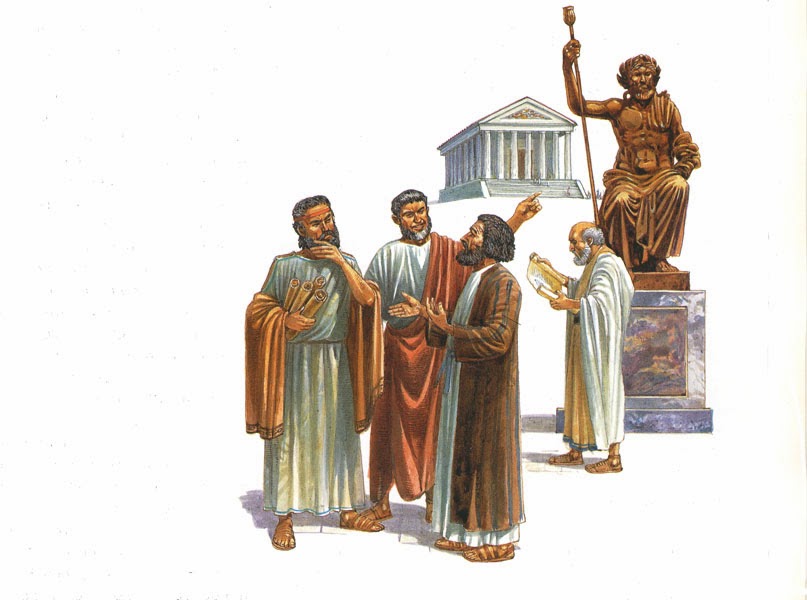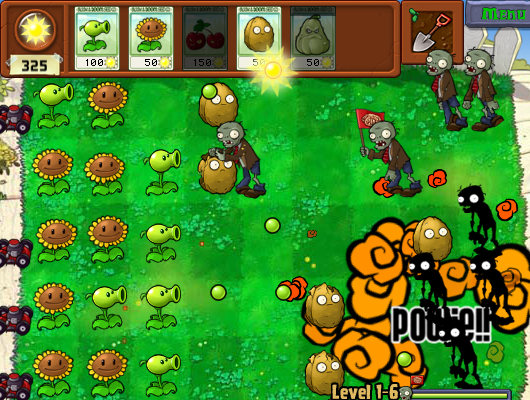Sermon On
Reviews on continuous living with God
Sunday, January 24, 2016
Friday, March 21, 2014
The Dangers of Introspection
 |
| Introspection II (2006) by Helen Burgess. Source |
Introspection means to look inward, look within
ourselves; it analyzes, assess ourselves, and knowing which part of our
personality becomes the weakness and strength. Also, introspection refer to the times when we define the surroundings with only our own
imagination and opinion. Introspection is often used as method of
self-improvement, to assess which part of our behavior that does
not follow certain teaching, principle, moral law, or our own conscience; then
we will try to fix it to form ourselves as the self-image we want to be.
For example, we meet a bright intelligent
student. His name is Harry. Harry has a target to become top 10 highest grades
among their class, he may analyze on what hinders his grade: studying method, friends, or learning environment. By discovering the
accurate details, Harry has clearer picture to improve and prepare becoming a better performing student.
Introspection on some level is quite good
for analyzing "my" behaviour. How about analyzing reality?
People build their worldview based on knowledge. Introspection only obtain knowledge within "my" understanding, which is limited. Therefore, when it comes to understand the world; on
seeking the meaning and purpose of life, or problems beyond our control,
introspection will turns to be dangerous and tragic. Introspection will
inflicts emptiness and loneliness, as it tries to seeking answer and meanings
in our own thinking; the mixture of feeling, logic, and psychology that's too complex.
Now, we meet Harry again. Harry has
flunked the final exam. He is shocked
and try responding his condition by blaming something: "It's because lack
of sleep, lack of reading enough materials. No, I must be study the wrong
materials that did not come for exam, or I just filling correct answers to the
wrong questions". Harry's friends and family know that he just lacking sleep and unfit, which affects errors . However, Harry responses by
introspecting himself, produces confusion and denial of reality.
The Need for Reflection
 |
| Image and Likeness of God (2013) by Therese Duran. Source |
The definition of introspection comes in
seeking answers within our own heart, our own conscience. Then, the writer
mentions heart to be divided in three spheres: thinking, experiencing, and
being. These three spheres operated in different functions, yet integrated to
define a meaningful connection with reality.
The Bible points to these functions of the heart as necessary for
engaging with what is real. Consider how Jesus teaches us about living in the
Parable of the Sower in Matthew 13 [1][2]. He addresses our
rationality, to bring
us to a
right thinking about the
situation. At the
same time, he addresses our imagination, through the use of symbol and
metaphor, which allows us to experience,
taste and connect with what he is saying. And in his emphasis on action he addresses
the will, by which we should respond in obedience.
- Fellows (2008) -
Unfortunately, "introspection"
often only leads to thinking and doing, but we are blurred on who
we are, what our identity is in front of unstable world.
Why Harry become so self-absorbed in his flunked exam? Technically, Harry builds hid own identity based on his academic achievements (and he really strive on becoming the best). When he fails on his exam, in his own thinking, he does not worth alive anymore. He becomes stressed, and does not see himself as the beloved son of his family, a nice keeper of soccer team, a patient teacher for his friends, etc. If Harry keep thinking like this, he may consider suicide.
Fortunately, The Bible provide answers to
overcome this habit. One method is by doing self-reflection. Where is the
difference between introspection and self-reflection? The difference lies on
the source and the direction. Introspection understands reality from looking inward
to "myself", "my situation" and refer to "my"
knowledge/opinion/feeling as the source . Introspection calls us "to live on your own". Self-reflection understands reality from
looking outward situation, and refer to the "truth and love" that is
written and taught from The Bible. Self-reflection calls us "to love", participate in reality.
Reflection means resembled image of
ourselves. We can see our reflection when we look in front of mirror. The Bible
says that "humans are created in the image and likeness of God" [3].
Therefore, according to the Bible, we are reflections of God. Therefore, the real humanity, our real identity, lies on God. This will give light to "see" ourselves as it is, where to go, how to live.
However, who to turn to? What kind of God we talk about here? As
The Bible tells so, let The Bible provide the answer [4].
End Notes
[2] Further explanation of "Parable of The Sower" Houdmann, M. What is the meaning of Parable of The Sower?
[3] Genesis 1:26
So, which is further difference between
introspection and self-reflection? You are welcome to download the paper below.
Presented by L'Abri
Presented by L'Abri
Saturday, March 8, 2014
World of Idols
 |
| Apostle Paul discussed with Athenians |
Acts 17:16-34
The sermon takes reflections on how apostle Paul's journey on preaching the Gospel to citizens of Athens. They believes in various mythology gods: Zeus, Artemis, Athena, etc. However, actually they are confused about the truth, and does not having any hobby but to know something new. In their altar's banner carved: To The Unknown God. The Holy Spirit enlighten Paul's senses, understanding, and emotion to see things behind Athen's culture that needs restoration from God's Word.
Paul's perspective contains essential parts of Christianity that brings effective evangelizing of Jesus Christ; which is delightfully good to meditate upon as layman's rejection towards Christianity often comes from radical, inaccurate understanding about Christianity, with such response:
Christianity? That self-righteous, arrogant religion? Sorry, dude, I do not take it. Let they feed themselves up about their religion.
The preacher mentions four actions of Paul's in Athens:
1. Where he went: marketplace
Paul went towards the "marketplace" of Athenians. The current resemblance to "marketplace" in Athens are "shopping malls", the place where people observe, enjoy, and buy life's goods and needs, from foods, clothes, houses, contracts, and educations. Imagine a multifunctional mall where you can attend study courses, shop, attend fairs, and buying house credits. For Athens, the marketplace was even more significant as there are governments discuss, philosophers teaching, merchants selling, etc; the center point of urban life. Paul went there, discussed Jesus Christ at the public.
Other religions may seems adequate by enjoying private worship or meditation. Christianity serves different takes; The argument lies on the character of God as Creator of all things, then His Wisdom must be heard all over the place.
Does not wisdom call? Does not understanding raise her voice? On the heights beside the way, at the crossroads she takes her stand?
- Proverbs 8:1-2, ESV -
2. How he feels: distressed
The feeling is addressed as "holy jealousy", being compassionate and indignant towards people around you, the people you love. Most people understands love as simply being kind, and jealousy is form of irrational possessive complex. Briefly, love in Christianity includes both elements: kindness and anger, if someone you love farther away from you. The opposite of love is not hate, it is indifference, where people does not put in care anymore.
This form of love also understood towards the Cross [1] , crucifixation of Jesus Christ. God The Father punishes Jesus Christ furiously with dead-sin-separation, for redeeming human sins [2] and transgressions. Jesus Christ pay the price and rise from the dead, giving access for humans to reunite with God by being faithful to Jesus.
3. What he saw: idols
Idols are the things or objects you like and feel you cannot live without. The sign of idol is on who/what we build our identity upon and admires the most. Idols appear in ancient times through idol worships in form of statues and mythology gods, that resembles human characters and nature, like god of sex, god of war, etc. In modern times, it may comes subtly through hobbies or careers. Every holics, from workaholic, shopaholic, etc. or other things could be the example. Does those things bring us closer to the real satisfaction? Or is it like addiction, the things we like first, but later bored, and cannot help but to do it [3]?
4. What he did: preach the Gospel
In short, it is all about sharing and proclaiming the Gospel of Jesus Christ [4] to humans, general calling to all Christians. Changing times shows increased thirst towards spirituality to find sense of meaning, purpose of life, or peace. One thing to consider, one human cannot live true life if they seek wisdoms and pleasures within themselves, their goals, or their own agenda. Rather, seek God as He is indeed our Creator and design us for a purpose.
Knowing Yourself begins with Knowing God
- John Calvin -
And Christianity may became the start.
End Notes
[1] What is sin?
Sunday, February 23, 2014
Strategies of Darkness
Bible Verses
Ephesians 6:10-13
There are good and evil in this world, where evil naturally occurs through people's behavior and murders. Christianity recognizes the other type, a supernatural evil that capable of mastering human's heart. The sermon is dedicated to acknowledge characters and strategies of demon, so people can know which way to fight the demon that playing on human's heart.
Ephesians 6:10-13
There are good and evil in this world, where evil naturally occurs through people's behavior and murders. Christianity recognizes the other type, a supernatural evil that capable of mastering human's heart. The sermon is dedicated to acknowledge characters and strategies of demon, so people can know which way to fight the demon that playing on human's heart.
One of
Devil's strategy is temptation, and Tim Keller addressed it by rethinking the
definition of "worship", shifting the definition from religious
context to philosophical context. Worship determines what we love, what we most
trust in our heart, that directs our desires-dreams- and life principles.
Examples taken from materialist (who builds identity on material belongings) and
sexual adddicts (who builds identity on sexual relationships). Even more, he
questions that Greek mythology gods roots from this understanding. From this
assertion, human's heart often fall on idols: little gods, and being influenced
by power of the devil. Based from The Holy Bible, people who refuse to believe
in God will have their heart commanded by devil, sooner or later (John 8:44).
The
characteristics of the devil further explained. Tim Keller expounded three
characters: (a) mighty; (b) wily/smart; (c) vulnerable. Mighty as the Devil
temporarily becomes Prince of The Air, the ones that rule and circulating lies
on Earth (as opposed to the Truth); Wily/Smart as they can fabricated lies into
seemingly "truth" or half truths that works well on two persons in
the Bible: Eve (Genesis 3:1-6) and Judah (John 12:6, 13:2, 27), which demonstrates
power of sin that separates and misdirect human from God. Fortunately, Devil is
also vulnerable since Jesus died and paid our sins on the cross that defeat the
law of sin. So, evil has no power in Christian heart that lives near to the
Truth: the person Jesus Christ.
In
conclusion, Christians can be more aware of evil's traps that lure human away
from God's love. Knowing the Devil personally from the Bible will help
Christians to reject them effectively. The preacher illustrates our heart as
The Garden and The Holy Bible as The Seed. Much of God's truth planted in our
heart will flourish the heavenly garden in our heart and become fruitful. In
the preacher's terms, we planted a "bomb" to destroy Devil's lies and
stand still in spiritual warfare, so our Heavenly Garden is protected. Just
like Plants vs. Zombies.
Subscribe to:
Posts (Atom)



